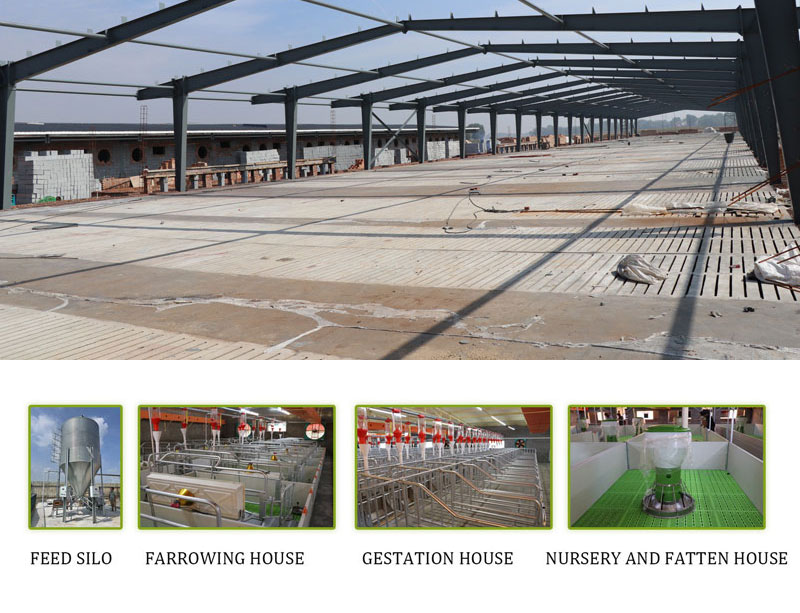Firstly, let’s look at a case of African Swine Fever in Anhui province in China:
A Case 1: On 4 November, a pig farm in Anhui hung 8 pieces of gauze on the fence next to the feed tower, of which 2 pieces of gauze combined samples tested positive.
B Case 2: On 13 November, 11 pieces of gauze were hung on the fence of a pig farm in Anhui Province, of which 2 pieces of gauze combined samples tested to positive.
C Case 3: On 14 November, gauze was hung on the second protection net of the air filtration box of a pig farm in Anhui Province, of which three pieces of gauze tested positive in the combined sample.
D Case 4: On 10 November, after a dust storm, a pig farm in Anhui Province tested positive for a feed room and a forklift in the production area: the door to the feed room at the farm was always open and the forklift was parked in the open. E Case 5: On 4 November, the surface of at a family farm in Anhui Province, a service department, tested positive.
E Case 5: On 4 November, the surface of at a family farm in Anhui Province, a service department, tested positive.
This case confirms that African swine fever spreads through dust. Therefore, we urge pig farms and family farms to seal all spaces, install air filtration systems, thoroughly disinfect the environment, and suspend material distribution and non-essential production during abnormal weather. For regular prevention and control of the fever, a systematic approach is essential. This approach should encompass personnel, materials, and swine management. Farm operators must take these measures seriously.
Moreover, Samfarming encourages farmers committed to the long-term farming industry to implement scientific decontamination programs and maintain strict biosecurity measures. If conditions permit, ensure your pig farm adheres to the following guidelines:
- Seal All Spaces: Prevent the entry of contaminated dust by sealing all openings.
- Install Air Filtration Systems: Use advanced filtration systems to clean the air within the farm.
- Disinfect Thoroughly: Regularly disinfect all areas to eliminate any traces of the virus.
- Suspend Non-Essential Activities: Halt material distribution and non-essential production during adverse weather conditions.
By following these guidelines, farmers can significantly reduce the risk of African swine fever and protect their livestock effectively.
Install air filtration systems:
High-efficiency filters and air purification equipment effectively filter pathogenic microorganisms and contaminants in the air. Reducing the risk of disease transmission. 2. Implement a precise ventilation system:
2. Implement a precise ventilation system:
Monitor temperature, humidity, and ammonia levels with an intelligent control system. To ensure accurate ventilation, maintain optimal air quality in the pig house, and provide a comfortable environment for growth. 3. Scientific decontamination:
3. Scientific decontamination:
Regularly use efficient decontamination equipment, such as high-pressure water guns and sprayers, to thoroughly clean and disinfect pigsties. This process kills pathogenic microorganisms and reduces the risk of disease transmission. 4. Remote monitoring system:
4. Remote monitoring system:
Sensors and data acquisition technology enable remote real-time monitoring of the pig house environment and pig health. This helps identify abnormalities promptly and take appropriate measures.
Implementing this equipment and technology enhances the biosecurity of pig farms. Ensuring pig health and production efficiency.
Samfarming offers personalized biosecurity planning and design solutions tailored to pigsty construction. We provide matching equipment and whole-farm solutions for farming enterprises.
